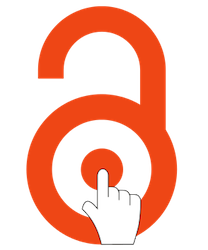EndNote Click vs. Lean Library
Compare and discover for yourself the key differences of EndNote Click and Lean Library


 EndNote Click powered by Web of Science |
 Lean Library |
||
| Access | Supported browsers | Chrome, Firefox and Opera | Chrome, Firefox, Opera, IE, Safari - read more |
| Supported content | Both subscription and open access journal articles. EndNote Click prioritizes publisher version of record PDFs, falling back on OA alternatives when no subscriptions are available. Partial support for book chapters. | Supported subscription resources with open access alternatives. | |
| Supported platforms | Integrates with over 20,000 academic websites. One click article access for PubMed search results. | Google Scholar, PubMed, JSTOR and academic websites where a user has access via their library subscription | |
| Is it free? | Yes, for individual researchers (EndNote Click Premium upgrade based on referral) - read more | No, requires institutional subscription - read more | |
| One-click PDF access | Yes | No | |
| Convenience | Off-campus subscription access | Yes, integrates with existing institutional infrastructure. In most cases already configured, but universities can supply. | Yes, initial setup of the institutions proxy required |
| Open Access articles | Yes, uses Unpaywall API and additional processes to access OA content | Yes, uses Unpaywall API to access OA content and other sources | |
| PDF storage | Yes, PDF cloud storage in EndNote Click Locker | No | |
| Search paper history | Yes, PDFs accessed stored in the EndNote Click Locker | No | |
| Reference management tool integration | Yes, integrates with EndNote, Mendeley and Zotero - read more | No | |
| Dropbox sync | Yes, when you upgrade to EndNote Click Premium | No | |
| E-book support | Partial, for publisher platforms where book chapters are hosted in same way as journal articles | Yes | |
| Paper sharing | Yes, EndNote Click supports easy sharing within research collaboration groups (as per STM Voluntary principles) - read more | No | |
| Paper citations | Yes, copy a formatted citation in different styles including MLA and APA | No | |
| Curated citation metrics | Yes, Web of Science Core Collection citation counts | No | |
| Assisted authentication | Yes, credentials optionally encrypted and cached in user's local browser - read more | No, requires users to reauthenticate when browser session expires | |
| Predatory journal detection | Use WOSCC citations to gauge quality of journal | No | |
| Library features | Library setup | No, works with most libraries by default. Libraries can amend as necessary at any time. | Library must supply holdings data |
| ILL/DDS support | Yes, via link resolver where available | Yes | |
| Customized Library branding | Yes | Yes | |
| Customized Library communication | Yes, via EndNote Click Locker | Yes, Library Assist - read more | |
| Supported aggregators | Yes, via link resolver where available (including EBSCO, Proquest and JSTOR) | Via link resolver | |
| EZproxy | Yes | Yes, if domains list provided by library - useful for non-journal content such as databases | |
| Supported authentication methods | Shibboleth, EZProxy, OpenAthens | OpenAthens - read more | |
| Two-factor authentication support | Yes, multi-factor authentication support for Duo and Okta | Unknown | |
| Analytics for libraries | Yes, COUNTER compliant | Yes |
For a more detailed comparison from a librarian perspective please read Aaron Tay's blog post
Other comparisons
See how EndNote Click compares to other research access browser plugins on our overview page
Disclaimer
The goal of this comparison is to enable both researchers and librarians to make an informed decision on the best tool to access full-text PDFs of journal articles and save time in doing so. We'd like to keep this comparison objective and are open for feedback and updates where applicable, please reach out to us at https://support.clarivate.com/Endnote and we will make sure it's updated as soon as possible.
Latest Update: November 2019

